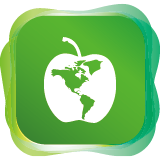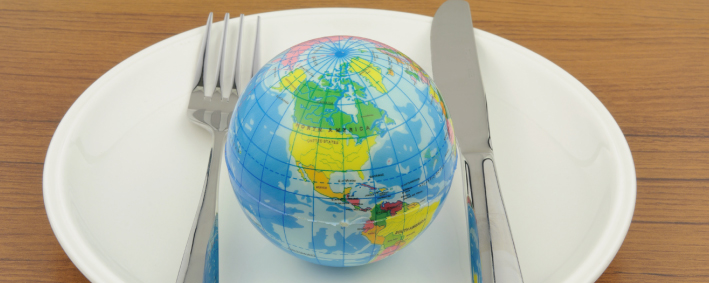 |
CCGL9016 Global IssuesFeeding the WorldThis course is under the thematic cluster(s) of:
|
Course Description
Continuing human population increases, competition for water supplies, and concern about energy prices have led to profound pessimism about long-term food supplies. Already a billion people go hungry every day. This course offers an in-depth look at key issues in global food sufficiency, food production, food distribution, prospects and constraints. You will develop an integrated technical, economic and political understanding of the global food supply crisis. You will be equipped to understand and appreciate media reports related to this issue in your lives as informed and influential citizens. Topics covered will include: global food production and population trends; the special problem of China, the world’s biggest producer and consumer of food; the Green Revolution; alternative agricultures; meat production; agriculture as an energy-intensive business; water and agriculture; and biofuels.

Course Learning Outcomes
On completing the course, students will be able to:
- Describe and explain the Green Revolution and its relationship to future improvements in agriculture through biotechnology.
- Demonstrate an understanding of the critical issues facing China’s struggle to feed itself.
- Discuss critically the fundamental relationships among energy supply, energy cost, and food production.
- Use newly developed skills to critically read, analyze and interpret media reports on food supply related topics.
- Demonstrate investigative skills by preparing an in-depth group investigation (resulting in a 30 minute presentation) using library databases and FAOSTAT production data.
Offer Semester and Day of Teaching
First semester (Sat)
Study Load
| Activities | Number of hours |
| Lectures | 24 |
| Tutorials | 12 |
| Seminars | 6.5 |
| Reading / Self-study | 40 |
| Assessment: Essay / Report writing | 12 |
| Assessment: Presentation (incl preparation) | 40 |
| Assessment: In-class test | 1.5 |
| Total: | 136 |
Assessment: 100% coursework
| Assessment Tasks | Weighting |
| Quizzes / Participation | 10 |
| Short writing assignments | 10 |
| In-class test | 40 |
| Group project and presentation | 40 |
Required Reading
- Bloomberg. (2017). Farming the World: China’s Epic Race to Avoid a Food Crisis. From https://www.bloomberg.com/graphics/2017-feeding-china/
- Corke, H., & Cai, Y. Z. (2016). Grain production and consumption. Asia. Elsevier.
- FAO, IFAD, UNICEF, WFP, & WHO. (2020). The State of Food Security and Nutrition in the World 2020. Transforming food systems for affordable healthy diets. Rome, FAO. From https://doi.org/10.4060/ca9692en
- FAO. (2017). The future of food and agriculture – Trends and challenges. Rome.
- FAO. (2020). The State of Food and Agriculture 2020. Overcoming water challenges in agriculture. Rome. From https://doi.org/10.4060/cb1447en
- FAO. (2021). The State of Food and Agriculture 2021. Making agrifood systems more resilient to shocks and stresses. Rome, FAO. From https://doi.org/10.4060/cb4476en
- The Economist. (2011). The 9 billion-people question A special report on feeding the world. London.
Several newspaper, popular science, business school case studies, website references, and other teaching resources will be prepared using up-to-date sources for each class session. Extensive use will be made of FAOSTAT, an agricultural production database from the United Nations.
Course Co-ordinator and Teacher(s)
| Course Co-ordinator | Contact |
| Dr G. Akom Faculty of Science |
Tel: 3917 8576 Email: gvakom@hku.hk |
| Teacher(s) | Contact |
| Dr G. Akom Faculty of Science |
Tel: 3917 8576 Email: gvakom@hku.hk |
| Professor D.L. Phillips Department of Chemistry, Faculty of Science |
Tel: 2859 2160 Email: phillips@hku.hk |

